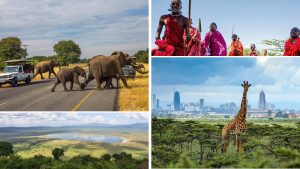Essential Considerations for Self-Guided Kilimanjaro Hiking
Kilimanjaro, the highest mountain in Africa, is a challenging yet rewarding adventure for many mountaineers. While most hikers choose to tackle this majestic peak with the assistance of a guide, some experienced trekkers may opt for a self-guided expedition. However, hiking Kilimanjaro without a guide requires careful planning and preparation to ensure a safe and successful journey.
When embarking on a self-guided Kilimanjaro hike, there are several essential considerations to keep in mind. Firstly, it is crucial to be well-versed in navigation and route-finding, as the mountain’s diverse terrain and changing weather conditions can make navigation challenging. It is recommended to study detailed maps of the mountain and familiarize yourself with the various trails and campsites along the route.
Additionally, self-guided hikers must be physically fit and mentally prepared for the strenuous trek ahead. Kilimanjaro’s high altitude and steep slopes can pose significant challenges, so it is essential to be in good physical health and have previous hiking experience in high-altitude environments.
Furthermore, self-guided hikers must carry all necessary equipment and supplies, including food, water, and camping gear. It is important to pack lightweight yet durable gear to minimize the weight of your backpack and ensure you have all essential items for the journey.
Tips and Preparations for Independent Mountaineers on Kilimanjaro
For those considering a self-guided hike up Kilimanjaro, here are some tips and preparations to help you have a successful and safe expedition:
-
Research the Route: Before setting out on your hike, thoroughly research the different routes up Kilimanjaro and choose the one that best suits your experience level and preferences. Each route offers unique scenery and challenges, so it is important to select the one that aligns with your goals and abilities.
-
Obtain the Necessary Permits: All hikers must obtain permits to climb Kilimanjaro, whether guided or self-guided. Make sure to secure the required permits in advance and follow all regulations set by the Tanzanian National Parks Authority.
-
Acclimate Properly: Altitude sickness is a common concern when climbing Kilimanjaro, so it is crucial to acclimate properly to the high altitude. Take your time ascending the mountain, drink plenty of water, and listen to your body’s signals to prevent altitude-related illnesses.
-
Emergency Communication: While hiking Kilimanjaro without a guide, it is essential to have a reliable means of communication in case of emergencies. Carry a fully charged cell phone with a local SIM card or a satellite phone to call for help if needed.
In conclusion, hiking Kilimanjaro without a guide can be a challenging yet rewarding experience for experienced mountaineers. By carefully planning and preparing for the journey, self-guided hikers can enjoy the beauty and adventure of this iconic mountain. For those interested in booking a self-guided Kilimanjaro hike, Sunset Africa Safari offers comprehensive tour packages. For booking requests, please contact info@sunsetafricasafari.com.


